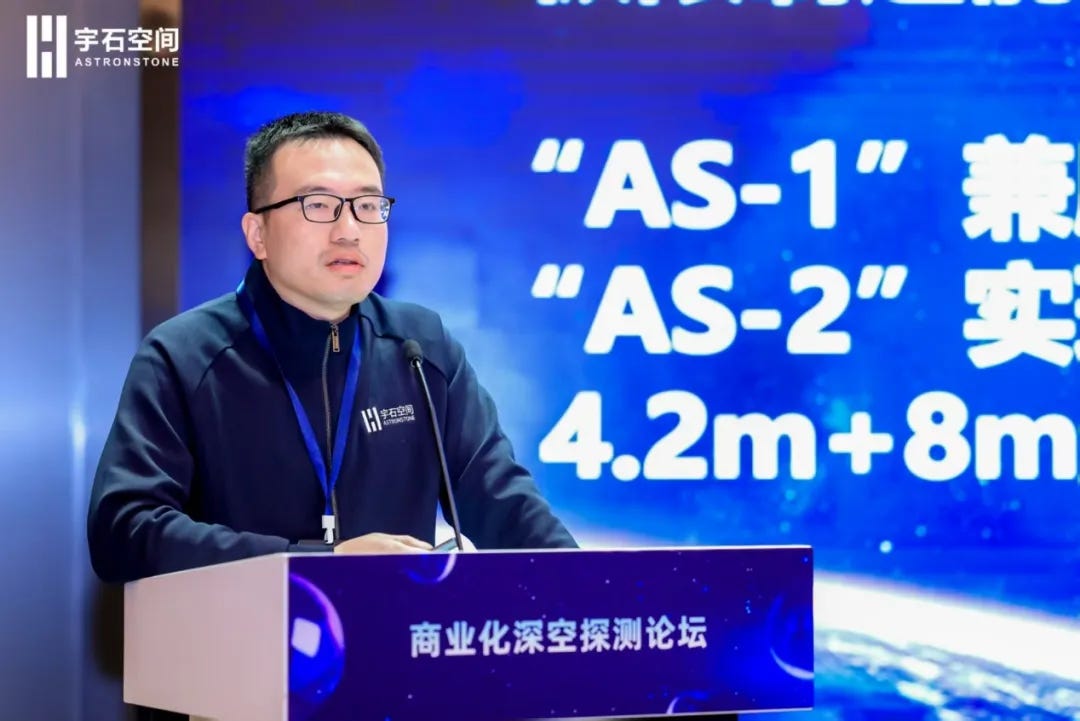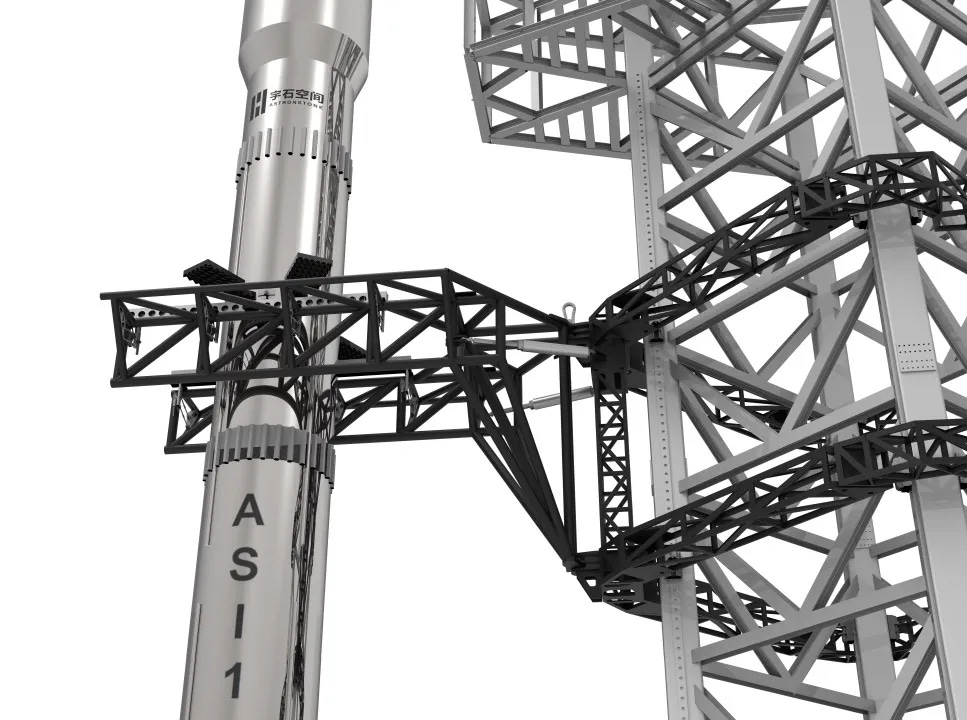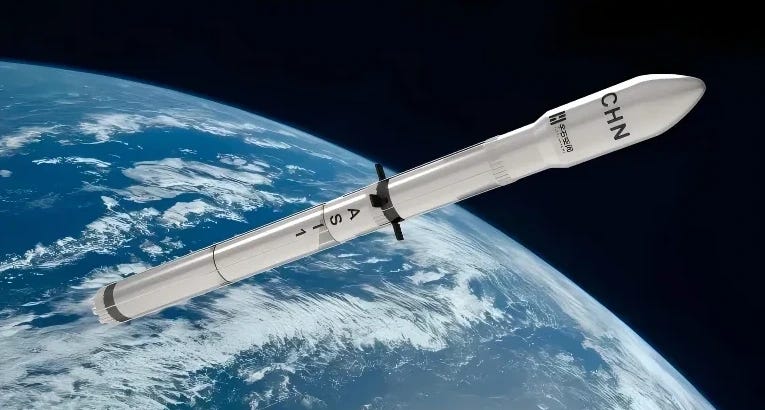Deep Blue, Astronstone Raise Millions of Yuan in New Funding
The new funds come potentially just months from China landing a first-stage booster.
As 2025 is set to be a critical year for China’s privately-owned space launch companies, more funding from investors is pouring into the nation’s commercial space sector. As such, Deep Blue Aerospace and Astronstone have both received substantial investments recently.
Astronstone (宇石空间), also known as Beijing Uishi Space Technology Co Ltd (北京宇石空间航天科技有限公司), announced on March 4th that it had completed its angel funding round, raising an undisclosed amount of Yuan in capital stated to be in the tens of millions. The company’s angel funding round was led by Lingge Venture Capital (麟阁创投), Yingtan Aerospace (鹰潭航天) and Shuimu Tsinghua Alumni Seed Fund (水木清华校友种子基金).
Astronstone is a relatively new company to the space launch business, having been established in the second half of 2024. Despite that, the company is working on developing a partially reusable liquid-fueled launch vehicle. And like other newly established companies such as Cosmoleap and Nayuta Space, it is aiming to utilize a 'chopstick’ catch tower for recovering first-stage boosters to save mass on the vehicle.
The partially reusable two-stage rocket, called AS-1, is expected to be made of stainless steel and burn liquid methane and liquid oxygen, with nine engines on the first-stage generating 700 tons of thrust, to allow Astronstone to develop a low-cost launch system, mainly to target launch contracts of various Chinese mega-constellations. This vehicle is currently planned to be 4.2 meters in diameter and 70 meters tall and weigh 570,000 kilograms fully fuelled. For payload, the company is aiming to have AS-1 deliver 15,700 kilograms into orbit when expended or 10,000 kilograms when reused.
Through utilizing a catch tower as well as liquid methane and liquid oxygen as the propellant, Astronstone believes they can refly a booster every ten days as part of plans to launch over one hundred times per year. Currently no roadmap to reach that launch cadence has been released. However, the company is aiming to have launch costs between 10,000 to 20,000 Yuan per kilogram of cargo, for launches costing between 100 million to 314 million Yuan.
Additionally, at a forum in Beijing, also on March 4th, Astronstone’s Chief Executive Officer Dr Tang Wen (唐文), who has worked on the Long March 5 and Long March 7 series of vehicles, shared a few details regarding current progress on AS-1. To produce AS-1, the company has taken up residence in a seven-thousand square meter production and testing center, where a stainless steel tank section with a diameter of 4.2 meters has been completed. Dr Tang Wen also added that AS-1 is targeting 2026 for its first flight, with some of his presentation slides hinting at a larger Starship-class super-heavy lift launch vehicle with a diameter of eight meters.
Back on March 6th, Deep Blue Aerospace announced they had completed their B4 funding round, raising 500 million Yuan (approximately 68.88 million United States Dollars, on March 10th). According to the company, this funding round was led by Tai’an Yuanwang New Energy Industry Investment Fund (泰安远望新能源产业投资基金), which is a subsidiary of Taishan Industrial Development Investment Group (泰山产业发展投资集团), to strengthen the Tai’an (泰安市) space cluster in Shandong Province (山东). Speaking on the new funding round, Deep Blue’s Chief Executive Officer Huo Liang (霍亮) added:
“This round of financing coincides with a key point in the transition of China's recoverable rockets from technology validation to commercial operations.” — “Deep Blue Aerospace will continue to focus on high-frequency, low-cost launch services, and continue to uphold the corporate vision of ‘aspire to be the promoter of the space transportation industry,’ to provide global customers with high-reliability, high-frequency, low-cost space transportation services, and provide impetus to the development and utilization of space resources by mankind. From the first contact between the two parties to the completion of the contract and payment, Taishan Industrial Group took less than 100 days, demonstrating the acceleration of Tai'an's industry in promoting the space economy with efficient actions."
If there are any problems with this translation please reach out and correct me.
In the coming weeks and months, Deep Blue is aiming to perform a successful hop test with its Nebula-1 VTVL test vehicle to demonstrate the technology needed for a first-stage landing. Following a successful test, the company may perform an orbital launch attempt with its Nebula-1 launch vehicle along with an attempt at landing the first-stage booster.
Depending on when Nebula-1 successfully performs its maiden flight, Deep Blue could be the third privately held Chinese launch company to reach orbit with a liquid-fuelled rocket, behind Space Pioneer with Tianlong-2 and LandSpace with Zhuque-2. Should Nebula-1 attempt a booster landing and be successful, the company would achieve China’s first orbital-class booster landing, and the second in the world.






